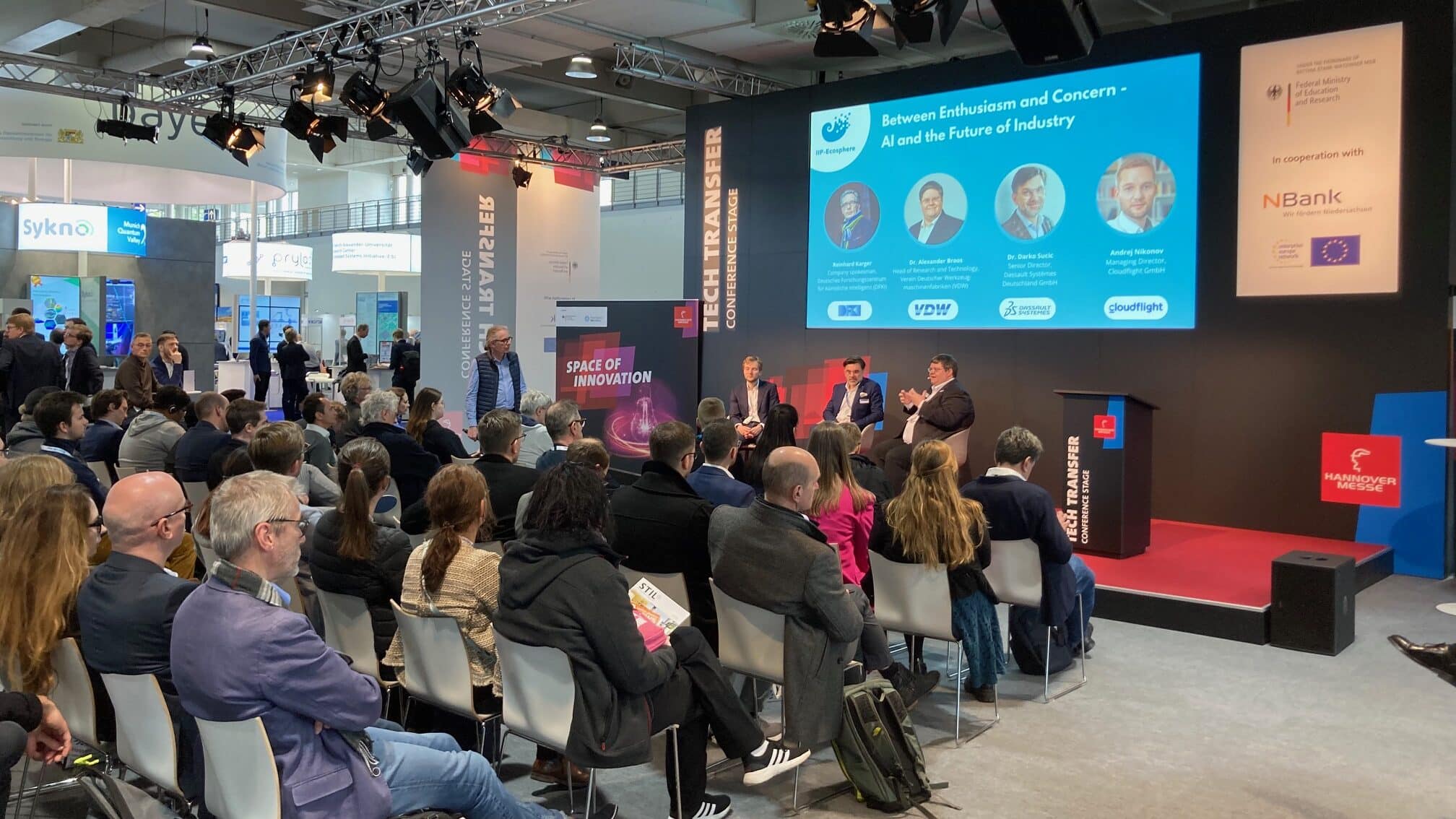150 participants were attending the event on the topic “Between enthusiasm and concern – AI and the future of industry” on Wednesday at the Tech Transfer Stage at the Hanover Fair.
Does the German industry urgently need artificial intelligence, or is it overburdening small and medium-sized enterprises – such and similarly provocative questions were the focus of the IIP-Ecosphere event “The Hot Seat”, intended to stimulate discussion with the approximately 150 audience members at the Hannover Messe on 19 April 2023. Several other interested people took part online.
Three high-profile business representatives took their seats in the “hot seat”. They fuelled the debate with deliberately pointed theses: Dr Alexander Broos, Head of Research and Technology at the German Machine Tool Builders’ Association (VDW), took the position that AI is overestimated on a small scale and underestimated on a large scale, especially by small and medium-sized enterprises. The two other speakers were Dr. Darko Sucic, Senior Director at Dassault Systèmes Deutschland GmbH (“AI is making skilled workers and engineers redundant”) and Andrej Nikonov, Managing Director at Cloudflight GmbH (“AI is making German industry dependent”). Reinhard Karger, company spokesperson for the German Research Centre for Artificial Intelligence (DFKI), led the round and involved the audience in the discussion.
What initially sounded pessimistic took a different turn in the course of the discussion. For SMEs, AI on the shop floor is not necessarily economical at the moment, said Broos. But the smaller companies are not so successful because they act as lone fighters, but because their technologies are developed in a network with suppliers, partners and customers. New players will join this network and bring AI into the companies. Companies can get ideas from the best practices of IIP-Ecosphere, for example. Sucic pointed to many start-ups and AI consultants who support SMEs.
And even eliminating jobs for skilled workers and engineers could be an advantage for companies and employees against the background of the shortage of skilled workers, who are freed from tedious or simple tasks thanks to AI. Well-trained people would then take care of the tricky questions, Sucic said. Nikonov also gave a slight all-clear: the dependence on very specialised hardware and software, data, AI specialists, infrastructure, unforeseeable regulations and laws is a risk that can be minimised, for example through in-house solutions or the modular construction of AI algorithms. According to Nikonov, companies should be careful not to become dependent on a single provider if possible.
Registered users can view the recording of the entire event in German and English on the HANNOVER MESSE website: https://www.hannovermesse.de/veranstaltung/-der-hei-e-stuhl-zwischen-begeisterung-und-besorgnis-ki-und-die-zukunft-der-industrie/pan/104824#


